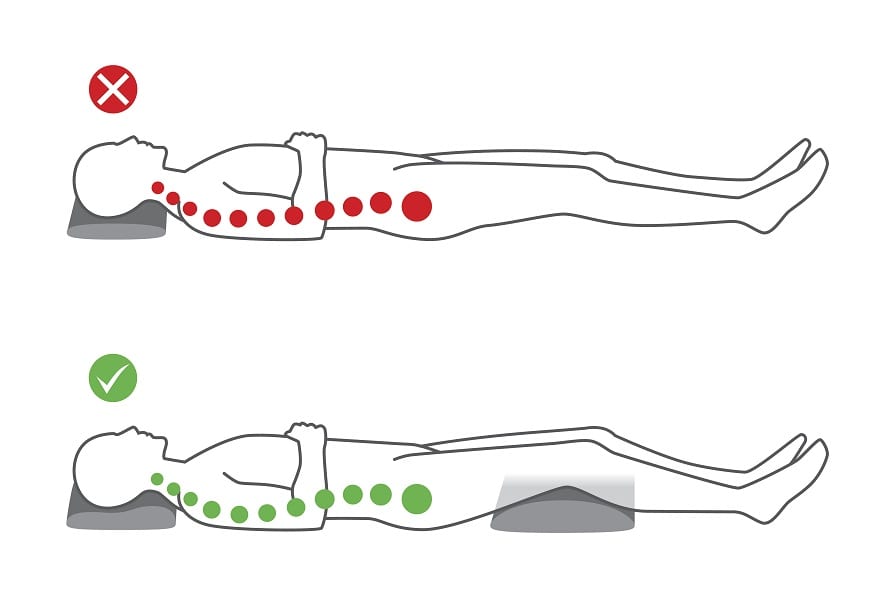
Our sleeping positions can significantly impact spinal health, potentially leading to back pain and long-term issues-
Stomach Sleeping: Considered the least favorable position, as it can misalign the cervical spine and flatten the lumbar curve, leading to muscle strain and nerve discomfort.
Back Sleeping: Generally supports spinal alignment, especially with a pillow under the knees to maintain lumbar curvature. However, it may not be suitable for individuals with snoring or sleep apnea.
Side Sleeping: Recommended for spinal comfort, particularly when knees are slightly bent with a pillow between them to align the hips, pelvis, and spine.
Symptoms of Poor Sleep Posture:
Individuals may experience morning stiffness, neck or lower back pain, and difficulty getting out of bed. Over time, these symptoms can escalate to chronic conditions like disc herniation or spondylosis.
Recommendations:
Posture Coaching: Learning optimal sleeping positions tailored to one’s spinal structure.
Supportive Bedding: Using memory foam mattresses and orthopedic pillows to maintain proper alignment.
Physiotherapy: Engaging in exercises that enhance flexibility and correct posture.
Manual Therapy: Under professional guidance, techniques like spinal mobilization can be beneficial.
Medical Consultation: In cases of persistent discomfort, imaging tests like MRIs or X-rays may be recommended to identify structural issues.
swasthyaadmin
Published: April 24, 2025









